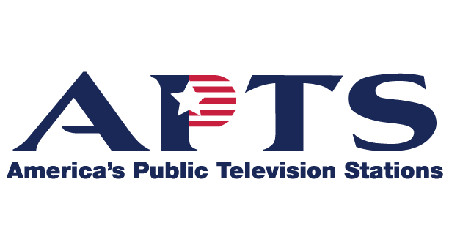APTS ‘Ready, Willing’ to Assist With FirstNet’s Public Safety Coverage
The professional video industry's #1 source for news, trends and product and tech information. Sign up below.
You are now subscribed
Your newsletter sign-up was successful
WASHINGTON—The America’s Public Television Stations has told the FCC they “stand ready, willing and able to leverage their nationwide network of high-powered broadcast television stations” in collaboration with FirstNet for the benefit of public safety users nationwide.

This was shared in response to the FCC's request for comment on whether the FCC should make a declaratory ruling on the scope of FirstNet’s interoperability requirements,
APTS believes that the creation of a nationwide IP delivery network to complement FirstNet’s services and coverage by using the licensed spectrum of public television stations will improve first responder access to critical information during emergencies.
“All commenters, other than FirstNet and AT&T, support the commission’s review of FirstNet’s interoperability requirements under the Spectrum Act,” APTS said, adding that it has offered to assist both FirstNet and AT&T without success. “To leave public television stations, serving almost 97% of the American people—including some of the most rural and remote areas of our country—on the sidelines of the FirstNet infrastructure is to ignore a robust, reliable and ubiquitous partner whose public safety capabilities have proven effective in a variety of critical use cases. An inquiry to address the scope of FirstNet’s obligations—and its willingness—to provide access to and from other public safety networks, especially in light of FirstNet’s statutory requirements for coverage in rural areas, would be useful to all concerned.”
FirstNet was created by Congress with the goal of creating a system for enhancing communications during emergencies and other events. The nationwide service has a public-private partnership with AT&T to help deliver critical emergency information, including priority and preemptive features to create a “fast lane” on the public safety network.
APTS points out the infrastructure of more than 1,000 transmitters in all 50 states, Washington, D.C., and four U.S. territories that can work with FirstNet’s own infrastructure. It also identifies the advantages of digital datacasting for delivering encrypted and targetable IP data directly to first responders, helping to prevent the need of AT&T/FirstNet to preempt the public’s cell phone coverage during times of emergency.
Specifically, in a review of FirstNet APTS believes that the commission should “FirstNet’s ability approach to interoperability and integration with other public safety networks,” with a particular focus on coverage in rural areas and how it meets the needs of first responders in remote regions.
The professional video industry's #1 source for news, trends and product and tech information. Sign up below.
“Since the commission has the exclusive authority to determine whether renewal of FirstNet’s license is in the public interest, based on a determination of whether FirstNet has met its ‘duties and obligations’ under the law, the commission should certainly satisfy itself that FirstNet is providing ‘substantial’ coverage to rural areas of the country, as required by the Spectrum Act,” APTS wrote.
“Most importantly, FirstNet and the commission should work to establish the best possible eco-system for public safety communications. APTS and its member public television stations can play, and are eager to play, an important role in that eco-system—if given the opportunity.”
